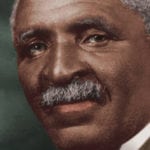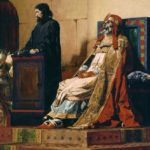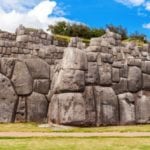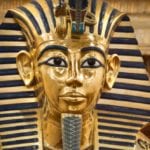 History
History  History
History  History
History 10 “Modern” Problems with Surprising Historical Analogs
 Health
Health 10 Everyday Activities That Secretly Alter Consciousness
 History
History Top 10 Historical Disasters Caused by Someone Calling in Sick
 Animals
Animals 10 New Shark Secrets That Recently Dropped
 Movies and TV
Movies and TV 10 Forgotten Realities of Early Live Television Broadcasts
 Technology
Technology 10 Stopgap Technologies That Became Industry Standards
 Weird Stuff
Weird Stuff 10 Wild Facts About Taxidermy That You Probably Didn’t Know
 Travel
Travel 10 Beautiful Travel Destinations (That Will Kill You)
 Miscellaneous
Miscellaneous 10 Modern Marriage Rituals Born from Corporate Branding
 History
History 10 Extreme Laws That Tried to Engineer Society
 History
History 10 “Modern” Problems with Surprising Historical Analogs
 Health
Health 10 Everyday Activities That Secretly Alter Consciousness
Who's Behind Listverse?

Jamie Frater
Head Editor
Jamie founded Listverse due to an insatiable desire to share fascinating, obscure, and bizarre facts. He has been a guest speaker on numerous national radio and television stations and is a five time published author.
More About Us History
History Top 10 Historical Disasters Caused by Someone Calling in Sick
 Animals
Animals 10 New Shark Secrets That Recently Dropped
 Movies and TV
Movies and TV 10 Forgotten Realities of Early Live Television Broadcasts
 Technology
Technology 10 Stopgap Technologies That Became Industry Standards
 Weird Stuff
Weird Stuff 10 Wild Facts About Taxidermy That You Probably Didn’t Know
 Travel
Travel 10 Beautiful Travel Destinations (That Will Kill You)
 Miscellaneous
Miscellaneous 10 Modern Marriage Rituals Born from Corporate Branding
10 Amazing Comebacks By Historical Figures
Throughout history, leaders have risen and fallen. Some were dethroned, never to return to their former glory, while others regained what they once had plus more. The figures and groups here were defeated but miraculously rose from the ashes like a phoenix, returning to greatness. Some remained in power to their death, while others lost power yet again. Whatever the ultimate ending, here are 10 stories of great returns to power.
10 Richard Nixon Becomes President
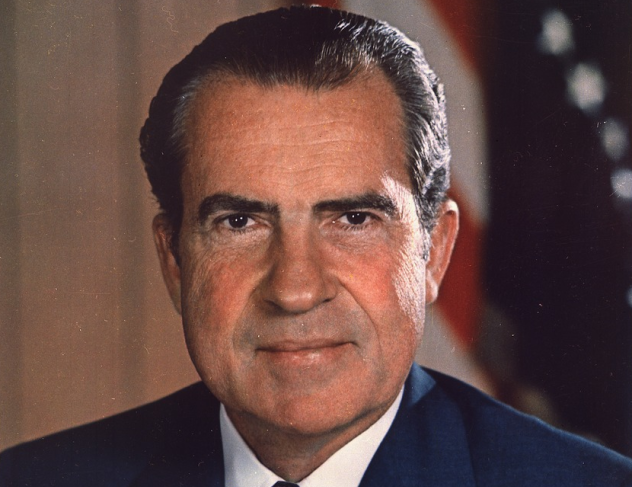
Throughout much of the Eisenhower presidency, Richard Nixon was considered the only front-runner of the Republican Party. He had overcome every political obstacle and seemed to be the strongest candidate they had. However, neither the Republicans nor Nixon could have predicted the rise of John F. Kennedy. The presidential race of 1960 was one of the most bitter in US history, and when all was said and done, Kennedy came out the victor. This was a crushing blow for Nixon, who had been seen as the logical successor to Eisenhower. To add insult to defeat, Nixon then lost the 1962 governor’s race in his home state of California.
After his defeat in California, most considered Nixon’s political career to be over. The widely held opinion of most Republican voters was that no one could return from such crushing defeats to do anything else. Even Nixon himself seemed to know that his career was dead. He infamously told the media after his loss in California: “You won’t have Nixon to kick around anymore because, gentleman, this is my last press conference.” Nixon left California and went to New York, where he joined a law firm. Soon after, Nixon wrote a bestseller called Six Crisis.
Nixon began a carefully crafted campaign to rebuild himself on the public stage. First, he appeared on The Tonight Show in 1963 and played the piano, showing a side of himself that was different from what most voters saw. Nixon was patient enough to remain out of the 1964 Republican primaries, instead building up goodwill by campaigning. He toured the world to gather foreign policy experience. This went to good use; in 1968, Nixon made his comeback and won the presidency. Of course, Watergate happened four years later.
9 Benjamin Disraeli Regains The Prime Ministry
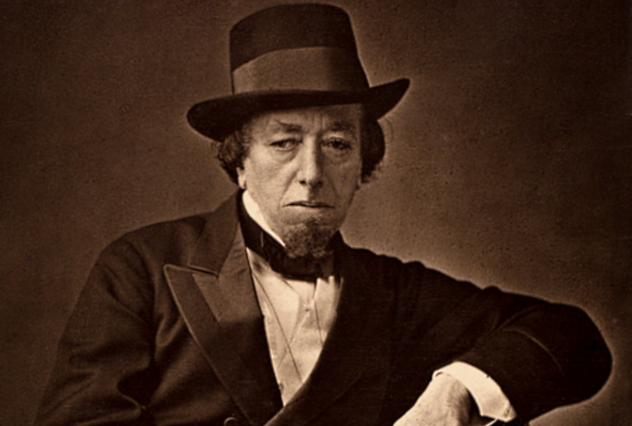
Benjamin Disraeli is now remembered as one of the most notable figures of the British Conservative Party. His career is the story of a man who was devoted to what he did; he was intelligent and was even a novelist while serving as prime minister. Disraeli first became prime minister when Edward Stanley-Smith, the earl of Derby, retired in 1868 after three terms as prime minister. When Disraeli took over, many distrusted him because of his politics and the fact that he was Jewish. (Although he was of Jewish descent, his religion was Anglican.) His position would last for less than a year. He made few accomplishments before he lost the election to William Gladstone of the Liberal Party.
Disraeli remained leader of the opposition in Parliament and tried to shift the power in the Conservative Party. He reformed it and made a more coherent policy. Disraeli poked fun at politics with his 1870 novel Lothair, which many saw as a sign of his apathy to Parliament. By 1872, however, Disraeli had sprung into action by becoming a very active and aggressive leader. He began to defend the Monarchy and express support for the Church, which the Liberal Party had been attacking. Sadly, that year, Disraeli’s wife died, but that didn’t stop him.
In 1873, Gladstone was defeated, but Disraeli refused to take the office of prime minister, knowing that this would force an election. Disraeli correctly believed that his Conservatives would win a hefty majority, allowing him to take over as prime minister in 1874. Disraeli did indeed become prime minister again in 1874. He led a brilliant career, but he grew increasingly ill. He died soon after the Conservatives lost Parliament in 1880.
8 Napoleon Returns To France
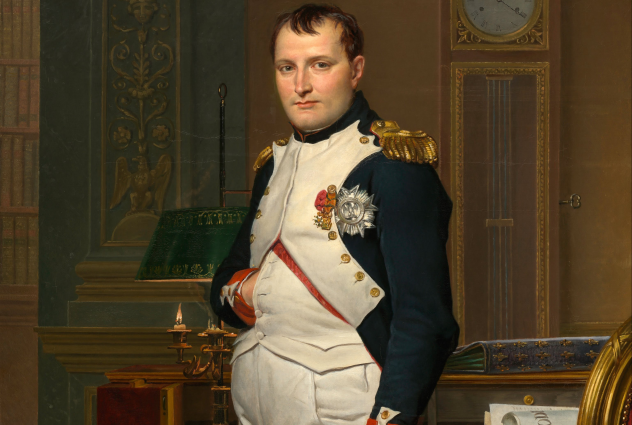
In 1814, Napoleon was exiled by the allied governments of Europe to the island of Elba after he was forced to abdicate his throne. Having been possibly one of the most powerful leaders in world history, Napoleon was naturally discontent with his new life. He was given 1,000 men to accompany him, and he was made emperor of Elba, less a concession and more of an insult to him. While Napoleon did work as leader of the island, he also worked and schemed to again become master of France and Europe.
The newly appointed monarch of France, Louis XVIII, was very unpopular. After the reforms of the French Revolution and Napoleonic eras, many French saw Louis as a return to the tyranny that they had attempted to escape. Napoleon was determined to regain his power and boldly escaped from Elba with his 1,000-man army on February 26, 1815, just 10 months after being exiled. His return was met with great fanfare by the French people, who gladly accepted his return. The troops who had once served under him pledged their allegiance and turned against Louis. Just one month after returning to France, Napoleon was again emperor.
From there, unfortunately, things went downhill. The allied countries of Europe formed the Seventh Coalition in response to Napoleon. He suffered his final defeat at Waterloo, and he was exiled to the small island of St. Helena. A broken man, he died there in 1821.
7 Ulysses S. Grant Becomes General

Ulysses S. Grant was always a spectacular horseman. When he was young, his skill with horses was well-known, and he was the top horseman in his class at West Point. After he graduated, he naturally seemed the most likely candidate to enter the cavalry unit, but he was assigned instead to the infantry. During the Mexican War, Grant was cited for his bravery in battle and quickly rose through the ranks, marrying his wife, Julia, and starting a family. His life seemed secure, until he was assigned to the Northwest Territory, and he was forced to leave his family behind.
Grant was very unhappy serving in Oregon and California, so he began to drink heavily to cope with the loneliness. He started to encounter financial problems, which further fueled his self-loathing. Feeling too depressed to go on with his career, Grant resigned from the Army in 1854. Grant and his wife tried (with little success) to run a farm that her father had given them. Grant was given one slave but decided to free him instead. He worked hard, but his refusal to use slave labor caused further failure. He tried to find work and resorted to pawning his watch to buy presents for his family on Christmas.
When the Civil War broke out in 1860, Grant got a job training volunteers. Though he was seen by many as a drunk, he was eventually reabsorbed into the Army because they needed trained officers. Grant became a brigadier general. His military genius stood out above all others, and by 1864, he was appointed by Lincoln as general of the Union Army.
In 1865, General Lee of the Confederacy surrendered at Appomattox, ending the war. In 1866, Grant was made general of the armies, a rank attained only by George Washington during the Revolutionary War. Grant was popular with the public, and in 1868, he was elected president of the United States.
6 Charles II Claims The Throne
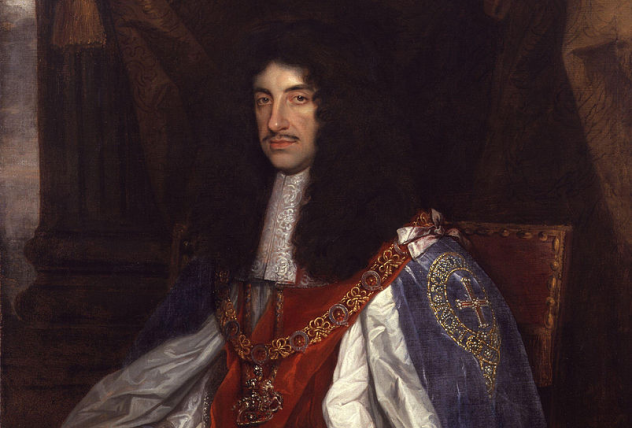
Charles II almost missed being king of England due to a violent revolution that overthrew his father, Charles I. This was the famous English Civil War in which Oliver Cromwell held power over England. It all began when the Roundheads, the group revolting against the Monarchs, began to wage war in 1642. Charles spent most of his formative teenage years fighting alongside his father until 1649, when Charles I was executed. To escape the same fate, Charles fled to France and then to the Netherlands. However, Charles was ever watchful over his throne, and in 1650, he made a deal to become king of Scotland. He led a force of troops to England but was defeated by Cromwell at the Battle of Worcester.
Again denied his rightful place on the throne, Charles returned into exile and roamed Europe, building up goodwill with various kings and rulers and gaining experience in foreign policy. While a number of plots were made to defeat Cromwell, nothing ever occurred, and Charles remained in exile. Various treaties between England and foreign countries forced Charles to move often, and he trusted very few people.
A big break came in 1658: Oliver Cromwell suddenly died. Afterward, there were no good leaders to take over, and the people became discontent and wanted to return to the monarchy. Charles was there to heed the call. After a decade and a half of exile, Charles rightfully claimed the crown in 1660 and ruled until 1685. While there were many great tragedies during his reign, such as the Plague and the Fire of London, Charles II was a generally happy figure, and his lavish lifestyle gained him the name of “the Merry Monarch.”
5 The Medici Family Reclaims Florence
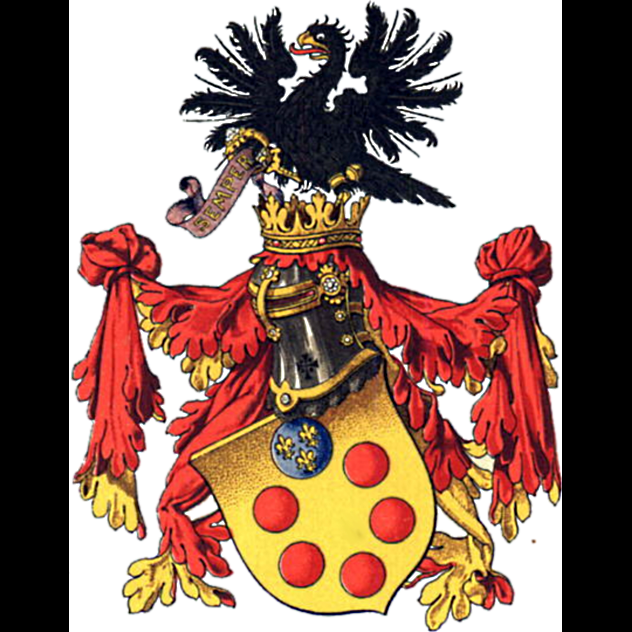
For much of Florence’s history during the Middle Ages and into the Renaissance, the Medici family used the city as their base of power. Originally, the family used Florence because trade and commerce were very prevalent in the city. After a depression upended the Florence elite in 1340, the Medicis became the royal family. However, Piero the Unfortunate (the name is a dead giveaway to his legacy) made some poor political decisions in the 1490s. He felt threatened by a French invasion of Italy and aligned himself with the state of Naples. When Charles VIII of France occupied Tuscany, Piero made a poor treaty with him, leaving the people of Florence unhappy. This turned into revolt, and Piero, along with the rest of the Medici family, was forced out of Florence.
Piero would restlessly attempt to regain power but never succeeded in doing so. He was drowned in the Garigliano River in 1503. The Medici family would only be exiled, however, until 1512, when Giovanni de’ Medici, who would become Pope Leo X, convinced the ailing Pope Julius II to back a counterrevolution in Florence. The Pope’s army marched with Giovanni and participated in the Siege of Prato, forcing the Florentine Republic to admit defeat and hand power back to the Medicis. A proclamation was made forcing the citizens of Florence to return the goods belonging to the Medici family, and every politician who ruled during their years of exile was tortured and exiled. The most notable result of this was the exile of Niccolo Machiavelli, who wrote The Prince and dedicated it to Medici heir Lorenzo de Piero de’ Medici.
4 Santa Anna’s Many Returns To Power
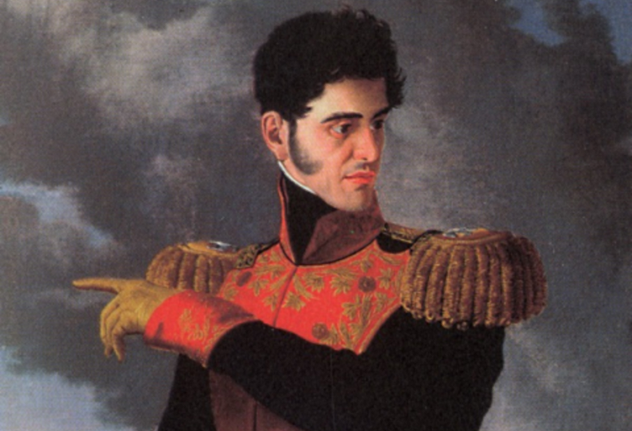
Antonio Lopez de Santa Anna was a charming politician, but he was foolish in his ways. Beginning in 1833, Santa Anna served no less than 11 nonconsecutive terms as president of Mexico, often more as a military dictator than as the head of a democracy. Power is fickle, though, and during the Texan War for Independence, Santa Anna lost the territory and became a prisoner of the US. After gaining the favor of President Andrew Jackson, Santa Anna returned to Mexico in 1837, promising that he would never again try to hold a political office. He retired to his hacienda for 18 months. Then, he led a military force against the French where he lost his leg. This made him something of a hero to the Mexican people.
In 1839, a liberal revolt again made Santa Anna interim president. While the country of Mexico was falling apart, Santa Anna charmed his way to the presidency again in 1841. He was widely popular even though he raised taxation to the hilt so he could pay for extravagant military displays and personal effects. In 1844, he was overthrown and fled to Veracruz but was captured and exiled to Cuba in 1845. He convinced the US government that he would settle the Texas border dispute if he were brought into the United States, but he escaped and prepared for war in Mexico. In December 1846, Santa Anna became president again and in 1847, he marched his troops against America. This offensive also failed. Fleeing both the American army and his own armies, Santa Anna went to Jamaica and then to Venezuela. This seemed like the end of his career, but it wasn’t.
By 1853, Mexico was again torn apart by chaos. The people wanted a leader they knew well, and Santa Anna fit the bill. He became president again, the people seeming to have forgotten his many failures. Santa Anna spent wildly, and he soon needed funds to pay off the massive debts he had incurred. Santa Anna sold much land to the United States as part of the Gadsden Treaty in 1854, an unpopular decision. This would prove to be his final undoing, as he was overthrown in 1855. He went to Europe, where he tried to stage another comeback, but his luck had finally run out. He returned to Mexico as an old man in 1873 and died in 1876.
3 Justinian II Becomes Emperor Again
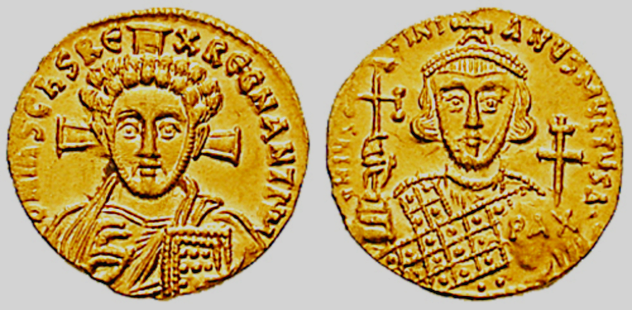
Justinian II was the emperor of the Byzantine Empire, also called the Eastern Roman Empire. He started his rule in AD 685 at the age of 16. At first, he was a successful ruler. He led a campaign into Thrace and Macedonia, reclaiming the territories from the Slavs. He signed a treaty with the Arabs, in which they increased tribute to the empire and ruled jointly over various territories. Everything was great until Justinian started to have disagreements with the Arabs, and the Byzantine Empire experienced several losses. This, along with a disagreement with the Pope, led to Justinian becoming increasingly unpopular.
Justinian became more ruthless with his policies in the empire, and he took money from his officers, which finally led to a revolution. Justinian’s nose was cut off, and he was exiled in 695. When Justinian learned that the new emperor planned to have him arrested, he fled to the Khazars, where he befriended the khan and married his sister. It was from his new wife that he learned that the Khan had been paid to kill him. Justinian again fled, this time to the Bulgars, where he formed an army. He knew his time had come to take back his empire.
In 705, a decade after his empire had been taken away, Justinian returned to become emperor. He reconciled with the Pope but wanted to take revenge against those who opposed him. He began to implement mass executions, which alienated him from the populace. Another revolt broke out, and this time, Justinian II and his family were killed.
2 Grover Cleveland Is Reelected
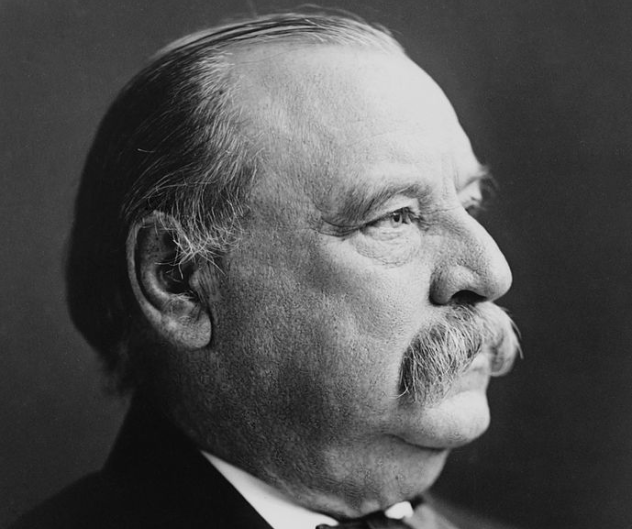
Grover Cleveland is mostly remembered today for being the only US president elected to two nonconsecutive terms. His first term as president was notable because he was the first Democrat elected after the Civil War. Cleveland was widely popular with the voting public, even winning the votes of Republicans who disliked their candidate, James G. Blaine. In 1886, Grover Cleveland made another first: He was the only president to marry in the White House. However, Cleveland’s hard-line stance on the issue of government assistance made him unpopular. He denied pensions for veterans which he saw as fraudulent claims, forced the railroads to hand over 81 million acres of land that they weren’t using, and vetoed a bill distributing seed grain among drought-stricken farmers.
Cleveland was proudly idealistic and frankly didn’t care about political consequences. In 1888, he lost his reelection bid to Benjamin Harrison. It was close; Cleveland won the popular vote, but Harrison won the electoral college. Cleveland spent the four years of the Harrison presidency working in a law firm. However, Harrison led a corrupt administration, and spending was so high that the budget surplus quickly disappeared. The Republicans also passed the highly unpopular McKinley Tariff, which only made the public even more unhappy with the government. Cleveland’s reputation for cutting spending looked very appealing again. In 1892, Cleveland was nominated by the Democratic Party and won the election by a wide margin. Cleveland received 277 votes in the electoral college, compared to Harrison’s 145. Soon after, however, the Depression of 1892 and a series of unsuccessful acts sunk Cleveland’s presidency.
1 Charles De Gaulle Leaves Retirement
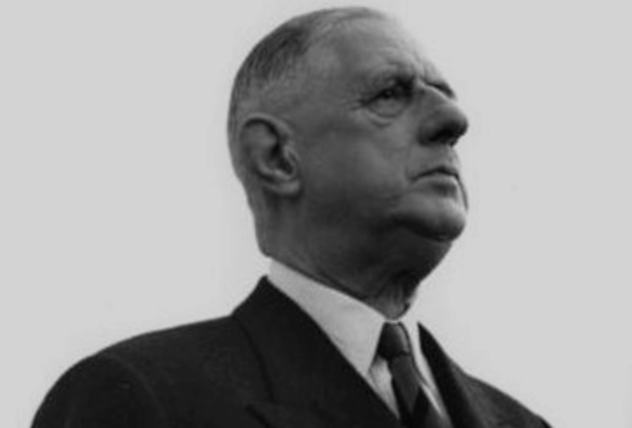
Charles de Gaulle is, according to the French, the greatest Frenchman ever. He dedicated his life to serving his country, first in World War I and then as the leader of the Free French, trying to liberate the country from Nazi rule. However, he was originally unpopular with both sides of the political aisle. The left considered de Gaulle, a military leader and devoted Roman Catholic, unacceptable, while the right disagreed with his position against Marshall Petain. This came to a head in 1946, when de Gaulle resigned because of his frustration with the political parties and their bickering over a coalition government.
He soon formed the Rally of the French People, a mass movement that became a full-fledged political party. They stood against the new constitution and the rise of the French Communist Party, which de Gaulle saw as harmful. However, by 1953, de Gaulle was dissatisfied with his own political child and left politics. He decided to rest at his estate and work on his memoirs. In 1958, de Gaulle was called back to politics when France was again on the brink of chaos.
In May 1958, Algiers, then a French-controlled territory, threatened revolution. De Gaulle himself was unsure of his return to politics, but President Rene Coty threatened to resign if de Gaulle wasn’t accepted. The National Assembly appointed de Gaulle prime minister and allowed him to amend the constitution. In 1959, de Gaulle was elected president of France. De Gaulle constantly engaged in public events so he could be as exposed as possible to the people. In 1962, de Gaulle negotiated Algerian independence, and the people rallied behind him. He established nuclear capabilities, strengthened the economy, and, most notably, remained above political parties, so he seemed almost above politics itself. By 1969, de Gaulle was ill and resigned. He died one year later in 1970 at the age of 79.
Gordon Gora is a struggling author who is desperately trying to make it. He is working on several projects but until he finishes one, he will write for Listverse for his bread and butter. You can write him at [email protected].
